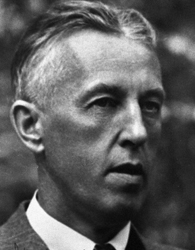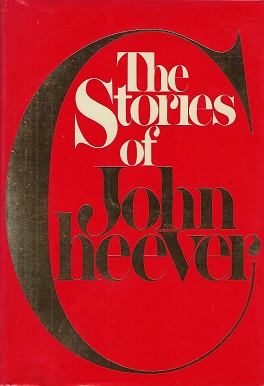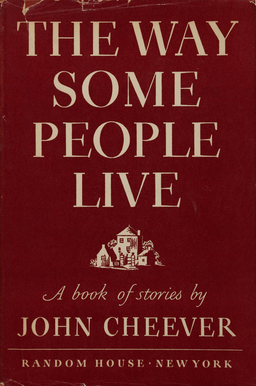Related Research Articles

William Griffith Wilson, also known as Bill Wilson or Bill W., was the co-founder of Alcoholics Anonymous (AA).

John William Cheever was an American short story writer and novelist. He is sometimes called "the Chekhov of the suburbs". His fiction is mostly set in the Upper East Side of Manhattan; the Westchester suburbs; old New England villages based on various South Shore towns around Quincy, Massachusetts, where he was born; and Italy, especially Rome. His short stories included "The Enormous Radio", "Goodbye, My Brother", "The Five-Forty-Eight", "The Country Husband", and "The Swimmer", and he also wrote five novels: The Wapshot Chronicle , The Wapshot Scandal, Bullet Park (1969), Falconer (1977) and a novella Oh What a Paradise It Seems (1982).
"The Swimmer" is a short story by American author John Cheever, originally published in The New Yorker on July 18, 1964, and then in the 1964 short fiction collection The Brigadier and the Golf Widow.

The Stories of John Cheever is a 1978 short story collection by American author John Cheever. It contains some of his most famous stories, including "The Enormous Radio", "Goodbye, My Brother", "The Country Husband", "The Five-Forty-Eight" and "The Swimmer". It won the Pulitzer Prize for Fiction and the National Book Critics Circle Award in 1979 and its first paperback edition won a 1981 National Book Award.

William Keepers Maxwell Jr. was an American editor, novelist, short story writer, essayist, children's author, and memoirist. He served as a fiction editor at The New Yorker from 1936 to 1975. An editor devoted to his writers, Maxwell became a mentor and confidant to many authors.
The Five-Forty-Eight is a short story written by John Cheever that was originally published in the April 10, 1954, issue of The New Yorker and later collected in The Stories of John Cheever (1978).

Texas, Brooklyn & Heaven is a 1948 American black-and-white romantic comedy film directed by William Castle and starring Guy Madison, Diana Lynn, James Dunn, and Florence Bates. A reporter in Dallas, Texas, goes to New York with the dream of becoming a playwright. En route, he picks up a hitchhiker who wants to visit Brooklyn and live with horses. The two encounter a variety of zany characters living in Brooklyn before returning to Texas together to live on a horse ranch. The script was based on the best-selling 1943 novel Eddie and The Archangel Mike by Barry Benefield.

The Enormous Radio and Other Stories is a collection of short fiction by John Cheever published in 1953 by Funk and Wagnalls. All fourteen stories were first published individually in The New Yorker. These works are included in The Stories of John Cheever (1978) published by Alfred A. Knopf.

The Way Some People Live is a collection of 30 works of short fiction by John Cheever, published in 1943 by Random House.

The Brigadier and the Golf Widow is a collection of short fiction by John Cheever, published by Harper and Row in 1964. These sixteen works were first published individually in The New Yorker. The works also appears in The Stories of John Cheever (1978).
"Goodbye, My Brother" is a short story by John Cheever, first published in The New Yorker, and collected in The Enormous Radio and Other Stories (1953). The work also appears in The Stories of John Cheever (1978).
"O Youth and Beauty!" is a short story by John Cheever first published in The New Yorker on August 22, 1953. The work was included the collection of Cheever's short fiction The Housebreaker of Shady Hill and Other Stories (1958) by Harper and Brothers. The story is also included in The Stories of John Cheever (1978).

Some People, Places and Things That Will Not Appear In My Next Novel is a collection of short fiction by John Cheever, published by Harper and Bros. in 1961. These nine short stories first appeared individually in The New Yorker or Esquire magazines. These works are included in the collection The Stories of John Cheever (1978), published by Alfred A. Knopf.
"The Country Husband" is a short story by John Cheever which first appeared in The New Yorker on November 20, 1954. The work was included in the collection of Cheever's short fiction The Housebreaker of Shady Hill and Other Stories (1958) published by Harper and Brothers. The story also appears in The Stories of John Cheever (1978).
"The Seaside Houses" is a short story by John Cheever which first appeared in The New Yorker on July 29, 1961. The work was included in the short fiction collection The Brigadier and the Golf Widow (1964), published by Harper and Row.
"The Brothers" is a short story by John Cheever which first appeared in The Yale Review in June 1937. The work was included in the short fiction collection The Way Some People Live (1943), published by Random House.
"Publick House" is a short story by John Cheever which first appeared in The New Yorker on August 16, 1941. The work was included in the short fiction collection The Way Some People Live (1943), published by Random House.
"Expelled" is a short story by John Cheever published by The New Republic in 1930. The story appears in a collection of Cheever's short fiction, Thirteen Uncollected Stories by John Cheever, published in 1994 by Academy Chicago Publishers
"Fall River" is a short story by John Cheever which originally appeared in the political journal The Left in the fall of 1931. The story is included in Thirteen Uncollected Stories by John Cheever (1994) published by Academy Chicago Publishers.
"Artemis, the Honest Well-Digger" is a work of short fiction by John Cheever, first appearing in Playboy magazine, January 1972. The story was collected in The World of Apples (1973), published by Alfred A. Knopf.
References
- ↑ Cheever, John. Reunion. Literature: A Pocket Anthology. Fourth Edition. Edited by R. S. Gwynn. New York: Penguin, 2009.
- ↑ "Reunion The Stories of John Cheever".